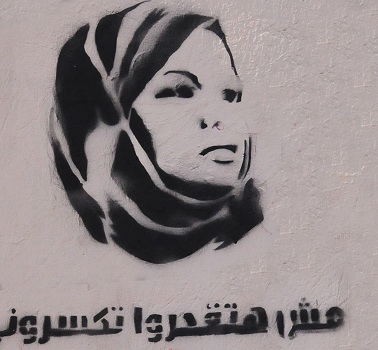Since the 25 January Revolution, which came about due to criticise and challenge the practices of Egypt’s police, the state has been providing much effort to help restore the image of the important state pillar: the police.
Propaganda videos of latest operations, arrests, and killings are featured almost daily on news broadcasts on state TV. On 6 August, the Ministry of Interior release a video titled “The arrest of terrorist elements involved in the Niger Embassy attack and the killing of ‘Jasmine’, daughter of Colonel Sharif Sami”. The video announced the death of Magdy Bassiony, who was described by the statement as “a leader of terrorist cell who is responsible of the Niger Embassy attack”.
Ramadan Bassiony, Magdy’s brother, told Daily News Egypt that his brother was detained by the police on 5 August. On the same day, Ramadan says he received a call confirming Magdy was killed.
“He was kidnapped from his house, and then the government [the police] called me and told me Magdy died,” Ramadan said adding that “during the attack of the embassy Magdy was in Al-Ayat village”.
However, the Ministry of Interior accused Magdy of attacking security forces guarding the Niger Embassy in Giza, which killed one conscript and injured three others. “He fired at the forces, which fired back and he was killed,” the ministry added.
The ministry also claimed that incident was part of “measures to target terrorist cells who are involved in targeting police and military officers and planting bombs around public institutions”.
Ramadan however, disagrees with the narrative of the police, saying that his dead brother was an electrician who quit practicing politics and going to demonstrations two months ago. He added: “He was arrested in February and was released. He was sick and suffered a severe stage of diabetes and splenomegaly.”
“After the revolution, he was a part of the Hazemon,” Ramadan said. “However he started to get serious diabetes strokes. He was going to get married but died before achieving his dream.”
The group Hazemon is named after the legacy of ultraconservative preacher Hazem Abu Ismail. Its members have been participating in weekly demonstrations to defy “security forces”. However, their activity has declined since the start of the year.
Magdy’s family accuses the police of killing him, without any legal reference, and in a situation “where he didn’t resist”. However, the ministry says they had permission from the ministry to the arrest.
The ministry also said: “Some of his arrested confessed that Magdy was a part of terrorist operations.”
The video was broadcast by Egyptian state TV last week, and showed three defendants allegedly confessing the details of the “attack”. All of the featured defendants can be heard using the same terminology whilst speaking.
One of them stated that his name is Alaa Hamed, and that Magdy invited him and others in Al-Ayiat, to receive training on using weapons. He also added: “We were convinced of some the Islamic State ideas, in order avenge the people who died in Egypt.”
Another, Yahia Hamdy, claimed he participated in protests and believed in the concepts of the Islamic State.
The preliminary prosecution investigations, says the defendants described Magdy as a “takfiri leader”. They added that, according to the prosecution findings which were published in local media, they wanted to imply “the existence of Islamic State supporters in Egypt”. They also mentioned names of other militant cells like “the Muslim Youth” and the “Coalition of Muslim”.
On the same day, the Ministry of Interior released a statement saying they killed five alleged members of the now banned Muslim Brotherhood group in Fayoum. The families of the five deceased similarly accuse the police apparatus of killing their relatives in cold blood after arresting them.


